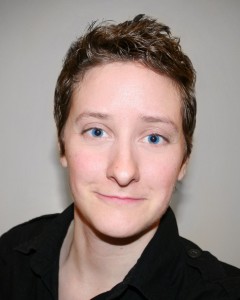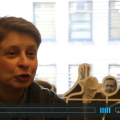 Erika Nonken graduated from the Nonprofit Management program in May 2013. Since graduating she has been engaged in nonprofit consultancy work through her business Reimagine Consulting, working with organizations on a variety of aspects of their work, including leadership, governance, fundraising and marketing/branding.
Erika Nonken graduated from the Nonprofit Management program in May 2013. Since graduating she has been engaged in nonprofit consultancy work through her business Reimagine Consulting, working with organizations on a variety of aspects of their work, including leadership, governance, fundraising and marketing/branding.
Want to be part of this series? Shoot us an email at [email protected].
Why did you choose the Non-Profit Management program at The New School?
I had been working in the nonprofit field for quite a few years before coming to Milano. What spurred me to return to school was a desire to take a step forward professionally (which a master’s degree would help with). More than that, though, was the poor management I saw pervasively throughout the nonprofit field. There clearly needed to be more, better-trained managers, so I set out to become one myself. In terms of why Milano specifically: I was looking for a place where I could learn the practical, hands-on skills I was looking to further develop; where I could reflect upon myself as a leader within the nonprofit field; and where I could grapple with the issues facing nonprofits and workers within nonprofits, from an explicitly progressive position. I found all of this at Milano in spades.
How did you develop a passion for working with nonprofits?
Above all else, I’m interested in working with the people who are making a positive difference in the world. I most often find those people within the nonprofit field. Though there are, of course, people engaged in wonderful work in government and business, I find these other sectors are often limited: business by considerations of profit, and government by unwieldy bureaucracies and political considerations. The nonprofit field is far from perfect, but I love the simplicity of stated organizational missions, and the passion that so many nonprofit employees and leaders bring to working on the causes close to their hearts. Nonprofits have the opportunity to take so many different forms, to do things differently: it’s a space of great possibility, into which people bring great emotion, which I find very exciting.
What aspects of your background and skill set do you draw on in order to meet your consulting client’s multidimensional needs?
I’m a total nerd, and love doing substantive, detailed research. Whatever the topic we’re working on together, at some point it’s usually going to need a world of hard facts, and I’m not shy to spend days seeking out and synthesizing a whole lot of detailed information. It’s the unglamorous side of consulting, but really strong research skills have served me better than any of my other skills.
My training in philosophy is actually also very helpful, since it helps me be able to take about 10,000 steps back and ask bigger, more underlying questions that usually arise in a staff or board meeting. This helps me notice what’s not being said, the contexts in which their work is being done, and the impact of those contexts. This perspective is especially important for organizations that are having challenges with their mission and fit.
Also, I’ve found it’s essential just to be a good listener. I don’t mean a social fly on the wall, but rather to present a friendly, confident, calm, reassuring demeanor; to be an engaging, good active listener asking questions about what you’re hearing; to be humble and bold at the same time when sharing back what you hear. In some cases the organizations know exactly what they need to be doing to make changes: they just need a good listener to draw those ideas out and reflect them back to them in an accessible way.
What class or professor from your time at The New School has been most influential on you?
Professor Erica Kohl-Arenas was an absolute inspiration to me from the start of the program. Her Theory and Practice of Nonprofit Management course, which is like Nonprofits 101, was amazingly effective at not only framing the nonprofit field theoretically and historically, but also gave us the tools right at the start to engage with deconstructing nonprofits, challenging the nonprofit status quo, asking the hard questions, and helping to guide positive change in organizations. Erica continued to be influential in inspiring me to challenge myself, to not shy away from my real convictions and not take the easy expected route, to acknowledge how hard this work can be, and to have a sense of hope about making transformative change happen in the world. I wish I had ten more years to learn from Erica.
Where would you like to be professionally in 5 years?
I’d like to be running my own organization serving oppressed women, as well as be a thought leader in the nonprofit world known for keenly challenging the status quo, a best-selling author, teaching at someplace like The New School, possibly with a milk goat herd side business, all with a great life-work balance. Shoot for the stars, right? 🙂



